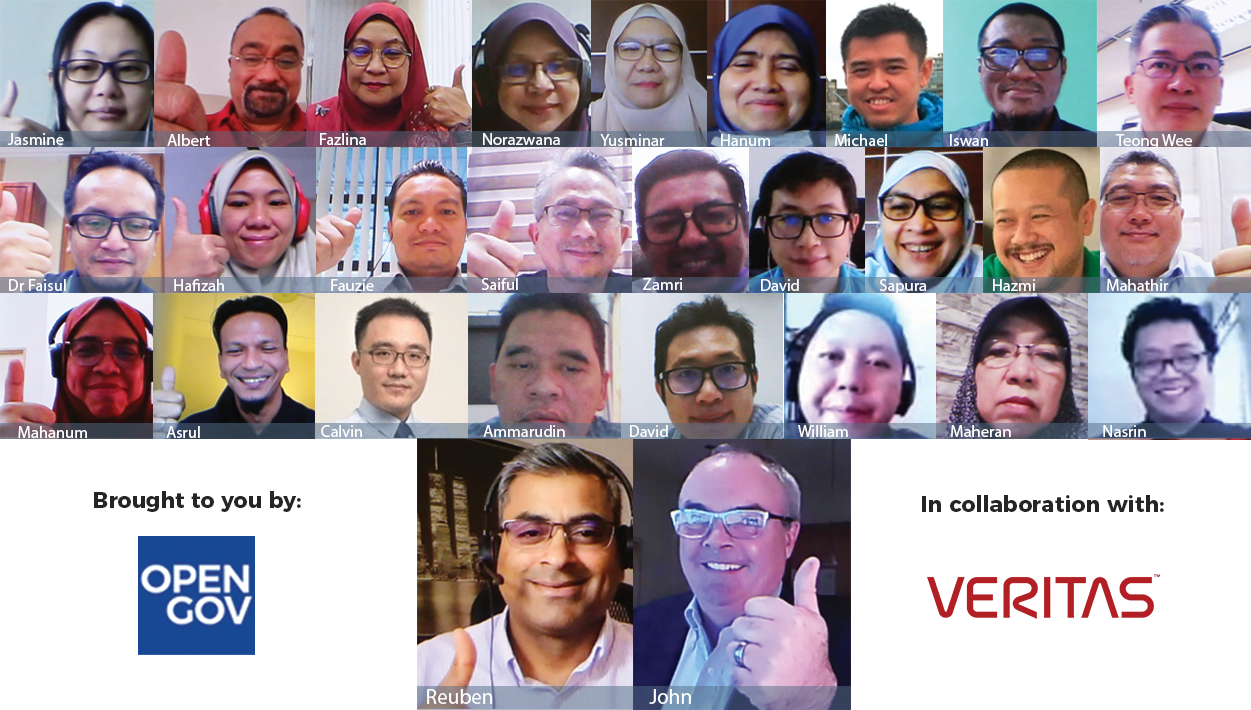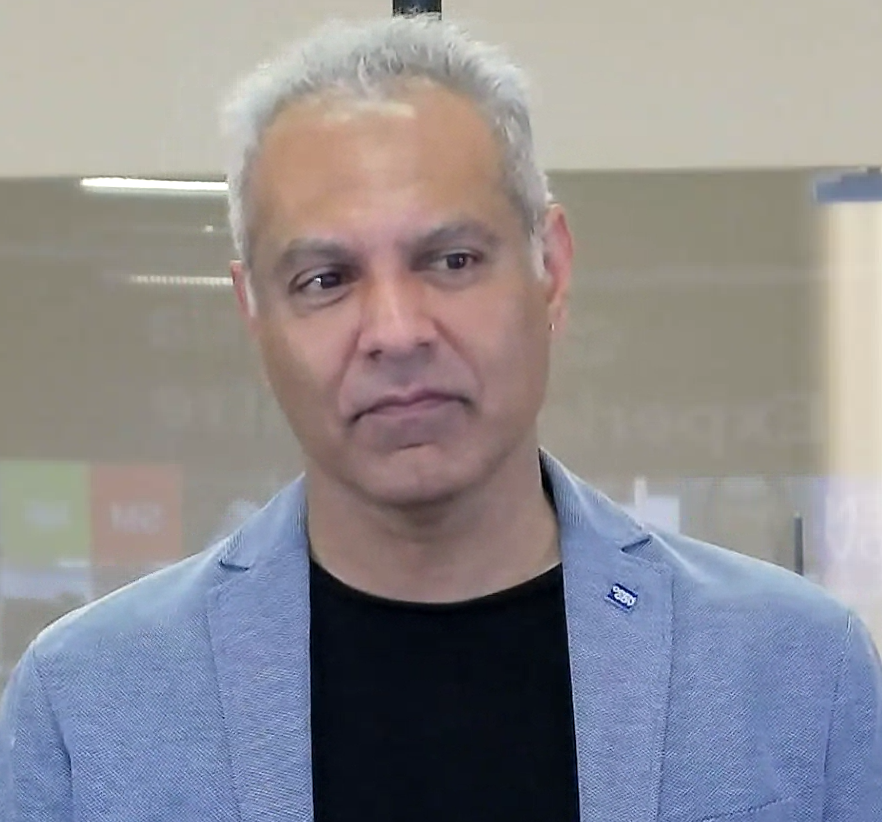
The pandemic has accelerated the process of digital transformation for governments, banks, and enterprises at a rate that we could never imagine. While this rapid digital shift has led to a data deluge in organisations, there is a lot of uncertainty about how to draw useful insights from it.
Looking to empower enterprises and agencies in Malaysia on secure and effective data management, OpenGov Asia organised an OpenGovLive! Virtual Breakfast Insight on 19 November 2020. The session witnessed an overwhelming level of attendance and engagement from the audience.
Make data management a priority in this evolving digital landscape

The session was opened by Mohit Sagar, Group Managing Director and Editor-in-Chief at OpenGov Asia. Mohit pointed to the fact that the volume of data being generated has increased exponentially over the past few months. But he was quick to note that the data would only be valuable if we organisations could to draw actionable insights from it.
He urged the delegates to make data management a priority in this evolving, and often, daunting digital landscape. As they chart out their data management strategy, it is imperative to keep in mind certain considerations, specifically – security, compliance and governance, cost, automation and performance monitoring.
Mohit acknowledged that providing access to all data to remote employees from anywhere and, at the same time, ensuring the security of data is an incredible balancing act that is vital for organisations to get right in the current context.
In the same vein, he also cautioned the audience to not let security concerns limit or block possibilities for them.
In conclusion, Mohit exhorted the delegates to incorporate a robust and scalable data management system. Rather than trying to do it by themselves, he advised them to partner with experts in the field who can support them on this journey.
Ransomware and cyber threat trends in the current Digital Landscape

After Mohit’s opening, Andy Ng, VP, Managing Director, ASR Sales shared some very insightful findings from research recently commissioned by Veritas. The study was conducted across 21 countries globally with a very strong representation from SEA.
The objective of the survey was to gain insight into organisations preparedness against ransomware attacks. Key findings from the survey indicated that:
- 64% store their data and applications in the cloud
- 61% use more than 5 different cloud services (data complexity/visibility)
- 70% of corporations who suffered a ransomware attack took more than 24 hours to resume normal business operations
- The third biggest concern occupying organisational time is how to fend off risks from external and internal risks and data loss
After shedding some light on the current cybersecurity landscape, Andy revealed how Veritas Enterprise Data Service Platform could help delegates better manage, protect, and simplify your data landscape.
Cloud is the biggest enabler of business agility today
After Andy’s presentation, Rueben Athaide, Head, Cloud Customer Engagement, Standard Chartered Bank offered his perspective to the delegates.
Reuben explained that cloud today is the biggest enabler of business agility in three key ways:
- instilling a culture of innovation
- reducing the cost and speed experimentation
- enabling taking advantage of external opportunities by connecting to ecosystems

He further shared that at Standard Chartered, the cloud service models are designed to support business strategies. Today, almost all the products and services of a bank are digitally enabled. Based on the classification of these products and services, Standard Chartered uses a combination of SaaS, IaaS and PaaS cloud service models.
Reuben expanded on the four key areas of cloud transformation for Standard Chartered. They include application migration from on-premise to hybrid, virtual workplace and end-user tools, security and network transformation.
He elaborated on how their cloud strategy helps enhance operational resilience. They have two on-prem data centres in two different geographical locations with a pair of data centres to enable disaster recovery. They have coded everything into their cloud operations to avoid any misunderstanding and miscommunication.
To ensure the security of data, they have laid down specific guiding principles and a broader approach based on the different categories of classified data.
Reuben concluded his presentation by emphasising the importance of data security.
Data explosion and rapid digital transformation have exposed the organisation to a lot of external risks

After Rueben’s information-rich presentation, John Abel, Senior Vice President and Chief Information Officer at Veritas Technologies shared his observations with the delegates.
John agreed that many organisations had to rethink the way they were operating and change their business models in light of the pandemic and the anticipated post-pandemic new normal. He acknowledged the rapid transformation and the increased digital footprint of doing everything online.
The data explosion and rapid digital transformation have also exposed organisations to a lot of external risks. All these factors together have increased the IT complexity making even more challenging for the organisations to stay resilient.
John concluded his presentation by showing the delegates how the Veritas Enterprise Data service platform can help them overcome these challenges. Their platform is built on 3 major pillars which include making data easily available, keeping it protected and enabling deriving insights from it.
After the presentations from the speakers, it was time to engage in discussion with the audience through polling questions.
On the first question about the requirement that is shaping your landscape to be agile with the business needs, a majority of the audience voted for adapting to changing customer demands (42%).
A senior delegate from a public sector agency shared that incorporating the needs of the citizens is of paramount importance as their primary goal is the serve the citizens in the best way possible.
On the next question about the biggest challenge faced by organisations when looking at digital transformation, the delegates were equally divided between skill shortage to implement and operate technology (36%) and dependency on the need to integrate with legacy systems and/or technology (36%).
Another delegate noted that they are seeing a lot of demand among citizens/customers to incorporate digital transformation in their processes. But there are a lot of legacy systems in place and integrating them into the new digital platforms is a very challenging task.
On the final question about the biggest consideration for your organisation when evaluating new technologies, the audience was once again split between cost optimisation (33%) and support for new and modern technologies (33%).
A delegate said, when looking for a new solution in the organisation, they ensure that it supports the latest technology to bring the ease in operations and processes.
After the interactive polling session, John addressed the delegates to bring the session to a timely closing.
As data is going to explode, complexity within organisations is going to go up. In line with Mohit’s advice, he advocated partnering with a stable and reliable organisation that can assist and support in the area of data classification and protection.
John encouraged the delegates to engage in conversation with the Veritas team and share with them their data management challenges so that they can assist them along their journey.
















